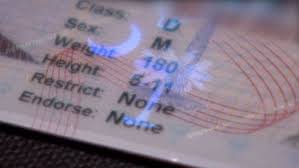Social Security Number (SSN)
In the United States, both Social Security Numbers (SSNs) and Driver Licenses are integral components of personal identification and access to a myriad of services. Their significance extends far beyond mere identification, influencing everything from financial transactions to legal rights. This essay delves into the importance of these two identifiers, exploring their roles in everyday life, their impact on security and privacy, and their implications for society.
Social Security Number (SSN)
1. Foundational Role in Financial Systems
The Social Security Number, introduced in 1936 as part of the Social Security Act, is a nine-digit number issued by the Social Security Administration (SSA). Originally designed to track earnings for the purpose of retirement benefits, the SSN has evolved into a key element in the U.S. financial and administrative systems.
Taxation: The SSN is crucial for tax purposes. Individuals must use their SSN when filing federal income taxes, allowing the Internal Revenue Service (IRS) to track earnings and ensure proper tax compliance. This number helps in the accurate calculation of income taxes and the assessment of eligibility for various tax credits and deductions.
Banking and Credit: Financial institutions use SSNs to verify identity and creditworthiness. When opening a bank account, applying for a loan, or obtaining a credit card, the SSN helps in assessing an individual's credit history and financial stability. Lenders and creditors rely on this information to mitigate risks associated with lending.
Employment: Employers use SSNs to report earnings and withhold taxes on behalf of employees. The number is essential for Social Security benefits tracking, ensuring that workers' contributions are properly recorded and credited towards their future retirement benefits.

2. Legal and Administrative Functions
The SSN also serves a range of administrative functions beyond financial transactions.
Healthcare: In the realm of healthcare, the SSN is often used as a patient identifier. Although the use of SSNs in healthcare has been decreasing due to privacy concerns, many healthcare providers and insurance companies still rely on this number to track medical records and insurance claims.
Social Security Benefits: The SSN is fundamental for the administration of Social Security benefits. This includes retirement benefits, disability benefits, and survivor benefits. The SSA uses the SSN to verify eligibility and calculate benefit amounts based on an individual's earnings history.
Government Services: For various government services, including some federal and state assistance programs, the SSN is used to confirm identity and eligibility. This includes programs like unemployment benefits, food assistance, and public housing.
3. Privacy and Security Concerns
The SSN’s central role in identity verification and financial transactions also makes it a target for identity theft. Unauthorized access to an SSN can lead to fraudulent activities, such as opening accounts or obtaining credit in someone else’s name. As a result, there have been ongoing efforts to improve the security of SSN data and mitigate the risks associated with identity theft.

Driver License
1. Legal Identification
The driver license like Ohio Fake ID, Rhode island Fake ID and Nebraska Fake ID and so on is a state-issued document that provides proof of identity and authorization to operate a motor vehicle. Issued by state Department of Motor Vehicles (DMVs), it serves several key functions.
Identity Verification: The driver license is one of the most widely accepted forms of identification in the U.S. It is used in a variety of contexts, including boarding flights, purchasing age-restricted products, and proving identity during interactions with law enforcement or other authorities.
Age Verification: Many businesses use driver licenses to verify the age of individuals, particularly for purchasing alcohol, tobacco, or other regulated products. This helps ensure compliance with age-related legal restrictions.
2. Driving Privileges and Traffic Regulations
License to Drive: The primary function of a driver license is to grant individuals the legal right to operate a motor vehicle. Obtaining a driver license requires passing written and practical tests that assess knowledge of traffic laws and driving skills.
Traffic Enforcement: The driver license also plays a role in traffic enforcement. It is linked to driving records, which include information on traffic violations, accidents, and points accumulated. This information is used to enforce traffic laws and ensure road safety.
3. Employment and Access
In addition to its role in driving, the driver license has broader implications for employment and access.
Employment Verification: Employers often use the driver license as a form of identification during the hiring process. It provides a valid means to verify an individual’s identity and legal authorization to work, particularly when combined with other documents like a Social Security card.
Access to Services: Many services, including certain governmental services, require a valid driver license for access or verification. This includes some financial services and public records requests.
4. Privacy and Security Concerns
The driver license, like the SSN, also faces privacy and security challenges. Identity theft and fraud related to driver licenses can have serious implications, including unauthorized use of driving privileges and identity fraud. Efforts to combat these issues include enhanced security features in modern driver licenses and more rigorous verification processes.
Comparative Analysis
While both the Social Security Number and Driver License serve as crucial tools for identity verification, their applications and implications differ.
Scope of Use: The SSN is primarily used for financial, tax, and benefits-related purposes, while the driver license is mainly used for identification and driving-related activities. The SSN's reach extends into various areas of personal and financial life, whereas the driver license is more narrowly focused on driving and identification
Issuing Authority: The SSN is issued by a federal agency (SSA), reflecting its national importance. In contrast, the driver license is issued by state authorities (DMVs), indicating its more localized and specialized role.
Security Risks: Both identifiers are vulnerable to misuse and identity theft. The SSN’s integration into financial systems makes it a prime target for identity theft, while the driver license's role in everyday transactions and access also exposes it to risks.
Conclusion
In summary, the Social Security Number and Driver License are indispensable elements of personal identification and access in the U.S. Their importance spans a wide range of activities, from financial transactions and tax reporting to driving and legal identification. While they each serve distinct functions, their roles are deeply intertwined with the functioning of various systems and services. However, their widespread use also brings challenges related to privacy and security, necessitating ongoing efforts to protect individuals' personal information. As society continues to evolve, the roles and security measures surrounding these identifiers will likely adapt to meet new challenges and needs.

 MissouriFake ID
MissouriFake ID
 UtahFake ID
UtahFake ID
 New YorkFake ID
New YorkFake ID
 MinnesotaFake ID
MinnesotaFake ID